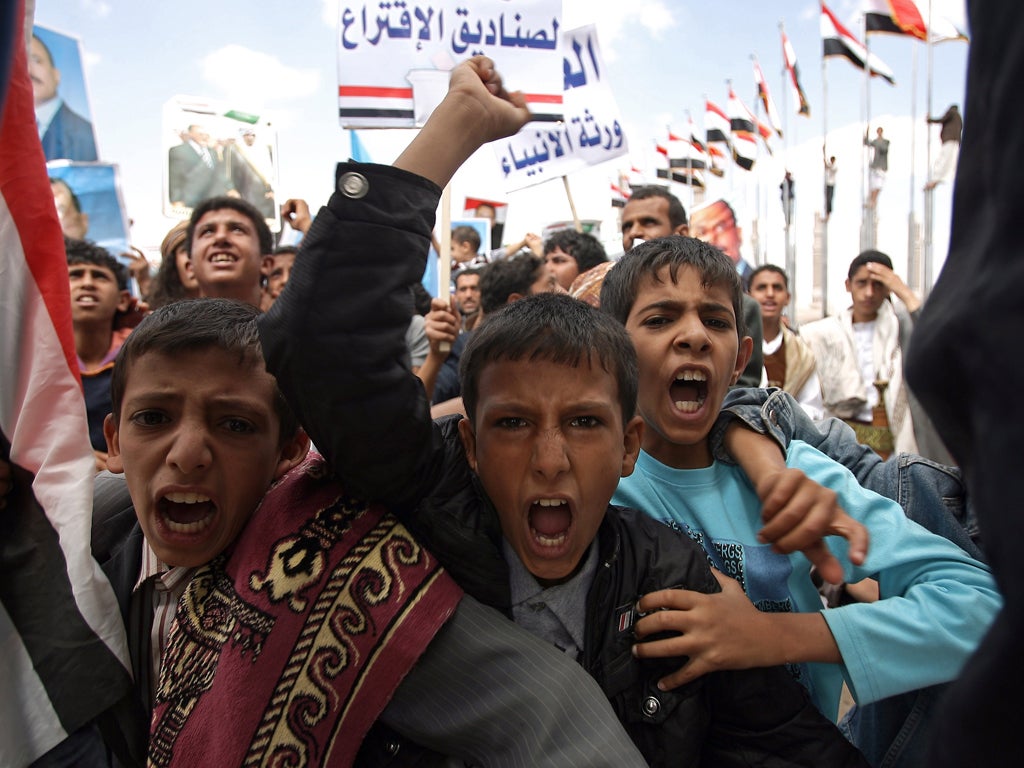Awlaki's killing could make Saleh stronger – and Yemen more dangerous than ever
The fallout in Yemen

If you watch one of Anwar al-Awlaki's hundreds of YouTube videos, the first thing that strikes you is the American accent in which he delivers his exhortations to jihad, a residue of his childhood in New Mexico.
But it's misleading. Awlaki spent his teens, and his final and most influential years, in Yemen. And that's where the aftershocks will be felt most strongly, just one week after President Ali Abdullah Saleh returned from medical treatment in Saudi Arabia. In life, as it may prove in death, Awlaki was probably more important to Saleh's political fate than he was to the global jihadi movement.
The rise of al-Qa'ida in the Arabian Peninsula (AQAP) presented a strange opportunity for the Yemeni government. The group's ability to threaten the US – as with the underpants bomber of 2009, and last year's cartridge bomb plot – meant that the US saw AQAP rather differently. Yemen was seen almost exclusively through the lens of the war on terror. Although Saleh sought to avoid looking like a Western puppet, he quickly realised that this was an opportunity to siphon off millions in US aid.
That's why the death of Yemen's bête noire, the so-called "bin Laden of the internet", has such curious timing. Pakistan, if you recall, has perfected a technique whereby Taliban and al-Qa'ida leaders are arrested or killed days before a US senator is due to visit.
Has Saleh lifted this trick? Yemen is disintegrating because the President, through his family, is refusing to give up power. There's every chance the intelligence leading to Awlaki's death was supplied as an attempt at political survival.
It wouldn't be the first time he has told the US that only he can take on the terrorists. After popular protests in March, Saleh simply withdrew his elite units from theal-Qa'ida-blighted province of Abyan to give Western leaders a taste of what might follow his ousting. If Awlaki was a victim of Yemen's faltering revolution, has Saleh therefore killed the goose that laid the golden eggs? Last year, the President famously told a US diplomat that the Americans were "hot-blooded and hasty when you need us", but "cold-blooded and British when we need you". Even exploiting Awlaki's death may not save Saleh – he is trying the patience of even allies like Saudi Arabia. But his successors needn't worry about being abandoned. The US has been rapidly escalating (frequently counterproductive) drone strikes in Yemen over past months, partly out of concern that AQAP is building links to Somalia's main insurgent group, al-Shabaab.
Perhaps the greatest danger now is that Saleh persuads his outside backers that he is indeed their man in Sanaa but, by clinging on, tears Yemen apart. The resulting opportunities for al-Qa'ida could make Awlaki pale into insignificance.
The writer is an associate fellow at the Royal United Services Institute
Join our commenting forum
Join thought-provoking conversations, follow other Independent readers and see their replies
Comments
Bookmark popover
Removed from bookmarks